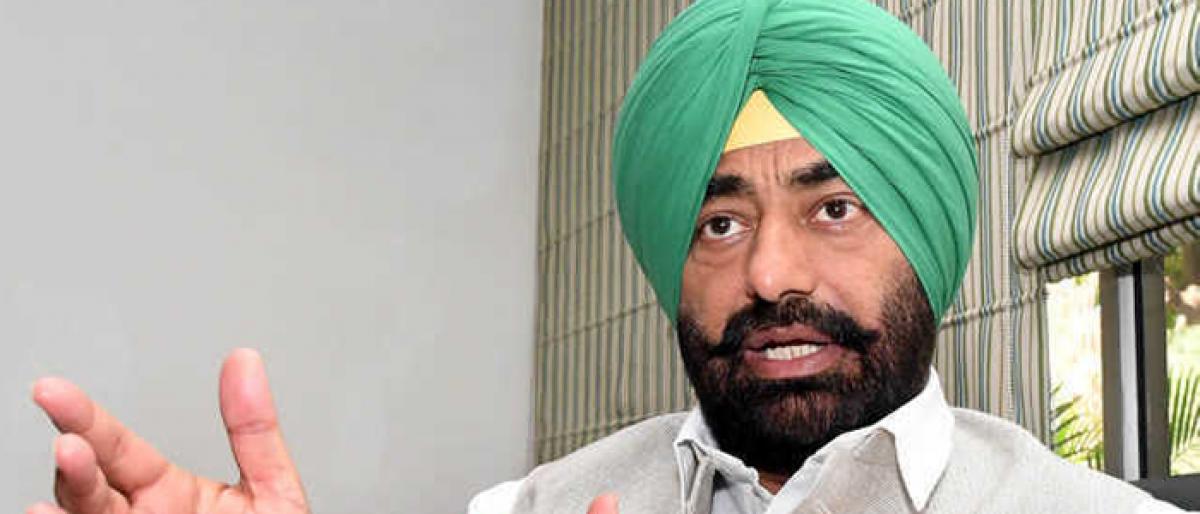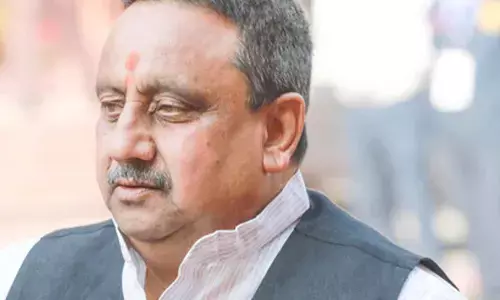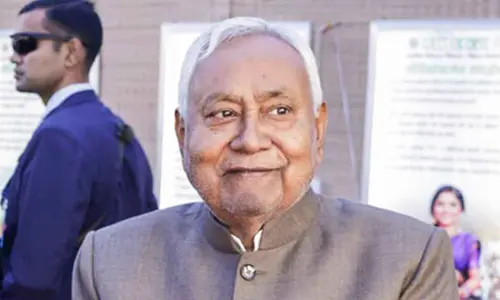MLA Sukhpal Singh Khaira refuses consent to disclose his degree; CIC orders disclosure

The Aam Aadmi Party MLA from Bholath in Punjab, Sukhpal Singh Khaira, has refused consent to disclose his degree and educational qualifications under the RTI Act, a move overruled by the Central Information Commission, which noted Caesar himself should be above suspicion
New Delhi: The Aam Aadmi Party MLA from Bholath in Punjab, Sukhpal Singh Khaira, has refused consent to disclose his degree and educational qualifications under the RTI Act, a move overruled by the Central Information Commission, which noted "Caesar himself should be above suspicion".
Information Commissioner Divya Prakash Sinha found it a fit case of invoking "larger public interest" and ordered DAV College in Chandigarh to disclose the information to an RTI applicant.
After the ruling, Khaira told PTI, "The RTI Act allows a public authority to seek consent of third party.
It is not mandatory that consent is given by the third party. I have no objection to disclosure of the information after the CIC order.
The information is also part of my election affidavit which is available on the Election Commission's website."
The applicant, Shashi Pal, had sought details of Khaira's educational qualifications but were not provided by the college, following which he filed an appeal before the commission.
When the matter came up for hearing, Sinha asked the official of DAV College the reasons behind denial of record.
"...CPIO submitted that consent of the third party was sought and based on the refusal of the said third party, information was denied to the appellant... submitted that the third party is a sitting MLA in the Punjab Legislative Assembly," Sinha pointed out.
Under the RTI Act, if an official feels that information held by him relates to a third party, he seeks consent of the person for the disclosure.
However, final decision rests on the official handling the application and larger public interest in the disclosure is a key determinant factor in making the record public.
"The denial of information disclosed in election affidavit by an elected member defies the very spirit of transparency and accountability solicited from a public representative," Sinha observed.
In his assembly election affidavit in 2017, Khaira has shown his highest educational qualification to be "BA 2nd year from DAV College, Chandigarh".
Last year, another Information Commissioner Sridhar Acharyulu had ordered inspection of academic records of BA 1978-batch of Delhi University, a year in which Prime Minister Narendra Modi has passed from the university and inspection of classes 10 and 12 school records of Union minister Smriti Irani. Both the orders were stayed by the Delhi High Court.
"The present set of facts tend to the famous idiom that 'Caesar's wife should be above suspicion' as a mark of ensuring probity in public life but 'it is not enough if Caesar's wife is above suspicion, Caesar himself should be above suspicion'," Sinha noted.
The official of DAV College also told the Commission that he also apprehended the availability of this information as it pertained to the year 1984, when preparatory system was being followed, so it is not clear if the third party was part of the preparatory course or B.A Part II course.
"The public representative is reposed with the trust of his people who elect him into office based on the declarations made in the nomination papers and other verbal affirmations deeming such individual to be worthy of representing them," Sinha said.
He said the aspect of larger public interest in disclosure of the information regarding a public representative who is expected to work towards the welfare of his/her constituency yields to the protection of right to privacy.
"When a public representative is making a declaration on affidavit, there ought to be no reason why he should refuse to give his consent for disclosure of the same under RTI Act.
Rather such hesitation raises a reasonable doubt in the minds of his/her constituents regarding the credibility of the representative," he said.
Terming the denial as "perturbing", Sinha noted it is established beyond any reasonable doubt that disclosure of the information sought in the instant RTI application is in larger public interest, a ground to disclose information even after denial from the person to whom it concerns.
The commission directed DAV College to provide information to the applicant after liaising adequately with the probable holder of information (Chandigarh University).
"Further, in the event, copy of degree remains untraceable and/or unavailable; the same should be stated by the CPIO (Central Public Information Officer) on an appropriately filed affidavit to be sent to the commission with its copy duly endorsed to the appellant," he said.


















